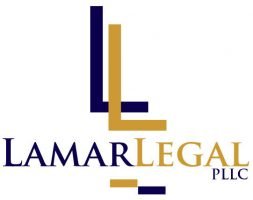
Florida For Profit Business Entity Comparison
After developing a clear understanding of your business model, purpose and goals, you can begin to consider choosing the business entity structure that will best support your new business.
The material below covers the various difference in ownership requirements, liability, formation, and governing documents for Florida For-Profit Business Entities. If you are interested in forming an entity in a state other than Florida, it is important to reference materials specific to that particular state, and consult with a licensed Attorney in the state of interest for questions. Choosing an entity for your business is a very important decision that can either help or hurt you in the long run.
When choosing an entity for your business, there are several important issues that must be considered. The purpose of the entity will play an important role in decision making. Other important considerations include the types of retirement plans, health and welfare plans, and other employee benefits that the entity plans to offer, as this varies among entity type. An experienced business formation attorney and tax advisor can provide valuable insight and guidance when choosing an entity type for your business.
The following entities are highlighted in the material below:
C-Corporations.
S-Corporations.
Limited liability Companies (LLCs).
General partnerships (GPs), and limited liability partnerships (LLPs).
limited Partnership (LPs), and limited liability limited partnerships (LLLPs).
- C-Corporation
- S-Corporation
- Limited Liability Company
- General Partnerships & Limited Liability Partnerships
- Limited Partnerships & Limited Liability Limited Partnerships
LIABILITY FOR BUSINESS OBLIGATIONS
A shareholder’s liability is limited to the obligation to pay the corporation the full consideration for which that shareholder’s shares were or will be issued (§ 607.0622(1), Fla. Stat.).
OWNERSHIP REQUIREMENTS
One or more shareholders, but the corporation has perpetual duration and continues to exist even if there are no outstanding shares (§ 607.0302, Fla. Stat.).
No restrictions on the types of owners.
FORMATION & FILING FEES
Articles of incorporation filed with the Division of Corporations (DOC)
Filing fees: $35 for the articles of incorporation. $35 fee for the designation and acceptance of the corporation’s registered agent.
Must file an annual report between January 1 and May 1 of each year.
$61.25 annual report fee and $88.75 supplemental corporate fee due when filing annual report.
GOVERNING DOCUMENTS
Articles of incorporation and bylaws (§ 607.0202 and § 607.0206 Fla. Stat.)
Initial bylaws are adopted by the incorporators or directors, unless that power is reserved to shareholders under the articles of incorporation.
Shareholders of a corporation with 100 or fewer shareholders may enter into a shareholders’ agreement that governs the exercise of corporate powers, the management of the corporation’s business and affairs, and the relationship between the shareholders, the directors and the corporation. (§ 607.0101)
LIABILITY FOR BUSINESS OBLIGATIONS
A shareholder’s liability is limited to the obligation to pay the corporation the full consideration for which that shareholder’s shares were or will be issued (§ 607.0622(1), Fla. Stat.).
OWNERSHIP REQUIREMENTS
One to 100 shareholders. The corporation has perpetual duration and continues to exist even if there are no outstanding shares (§ 607.0302, Fla. Stat.).
Limited exceptions: Only US citizens or legal resident aliens and certain trusts and tax exempt organizations can be shareholders.
Only eligible US entities can make an S-corporation election (generally a US C-corporation or other US business entity eligible to elect C-corporation tax status).
FORMATION & FILING FEES
Articles of incorporation filed with the Division of Corporations (DOC).
Filing fees: $35 for the articles of incorporation. $35 fee for the designation and acceptance of the corporation’s registered agent.
Must file an annual report between January 1 and May 1 of each year.
$61.25 annual report fee and $88.75 supplemental corporate fee due when filing annual report.
An eligible US entity makes a timely S-corporation election on IRS Form 2553, no more than two months and 15 days after the beginning of the tax year the election is to take effect (IRC § 1362).
Learning more about Florida Filing Fees in out post “How much does it cost to form a business in Florida?”
GOVERNING DOCUMENTS
Articles of incorporation and bylaws.
Initial bylaws are adopted by the incorporators or directors, unless that power is reserved to shareholders under articles of incorporation.
Shareholders of a corporation with 100 or fewer shareholders may enter into a shareholders’ agreement that governs the exercise of corporate powers, the managements of the corporation’s business and affairs, and the relationship between the shareholders, the directors and the corporation, even if the agreement’s provisions are inconsistent with other provisions of the FBCA, as long as they are not contrary to public policy.
LIABILITY FOR BUSINESS OBLIGATIONS
Members are not liable for the LLC’s debts, obligations, and other liabilities solely because they are, or are acting as, a member (§ 605.0304(1), Fla. Stat.).
OWNERSHIP REQUIREMENTS
One or more members (§§ 605.0201(4) and 605.0401, Fla. Stat.).
Two or more members required if LLC wants to be taxed as a partnership (Treas. Reg. § 301.7701-3).
An LLC cannot be formed until it has at least one member.
Generally no restrictions on the types of owners.
FORMATION & FILING FEES
Articles of organization become effective when the LLC has at least one member.
Filing fees: $100 for the articles of organization. $25 fee is required to designate or change of the LLC’s registered agent
Must file an annual report with the DOC between January 1 and May 1 of each year.
$50 annual report fee and $88.75 supplemental corporate fee due when filing annual report.
(§ 605.0213, Fla. Stat.)
GOVERNING DOCUMENTS
Articles of organization and operating agreement.
LIABILITY FOR BUSINESS OBLIGATIONS
All partners are typically jointly and severally liable for all partnership liabilities, including those incurred by acts or omissions of any partner acting in the ordinary course of business or with partnership authority, unless the partnership is an LLP (§§ 620.8305 and 620.8306(1), Fla. Stat.).
Any obligation incurred while a partnership is an LLC, whether arising in contract, tort or otherwise, is solely the obligation of the partnership and not the partners (§ 620.8306(3), Fla. Stat.).
OWNERSHIP REQUIREMENTS
At least two general partners (§ 620.8101(7), Fla. Stat.).
No restrictions on the types of owners.
A GP may become an LLP by filing a statement of qualification with the DOC and paying a $25 filing fee (§ 620.9001(3) and 620.81055(1)(f), Fla. Stat.).
FORMATION & FILING FEES
Association of two or more persons as co-owners to carry on a business for profit forms a partnership, even if not intended. A GP may, but need not, file a partnership registration statement with the DOC to form a partnership (§ 620.8105(1), Fla. Stat.). However, a partnership registration statement is a prerequisite to other actions, such as a merger or conversion.
Filing fees: $50 if filing a partnership registration statement.
A GP may become an LLP by filing a statement of qualification with the DOC and paying a $25 filing fee.
An LLP must file an annual report with the DOC between January 1 and May 1 of each year. $25 annual report fee.
GOVERNING DOCUMENTS
A written partnership agreement is recommended, but the agreement may be oral.
To the extent the partnership agreement is silent, Florida partnership law governs relations among partners and between partners and the partnership (§ 620.8103(1), Fla. Stat.).
Certain statutory provisions cannot be modified by the partnership agreement, and other statutory provisions regarding fiduciary duties of partners cannot be modified by the partnership agreement unless the modifications meet statutory limitations.
An LLP typically has a written limited liability partnership agreement.
LIABILITY FOR BUSINESS OBLIGATIONS
All general partners are typically jointly and severally liable for all LP obligations.
A limited partner is generally not liable for the obligations of the LP.
Any obligation incurred while an LP is an LLLP, whether arising in contract, told or otherwise, is solely the obligation of the LP and not the general or limited partners.
(§ 620.1404(1), Fla. Stat.).
OWNERSHIP REQUIREMENTS
One or more general partners and one or more limited partners (§ 620.1102(12), Fla. Stat.).
A person may be both a general and limited partner and have the rights, powers, duties, and obligations of each capacity (§ 620.1113, Fla. Stat.).
Generally no restrictions on the types of owners.
The certificate of limited partnership must state whether an LP is an LLLP (§ 620.1201(1)(d), Fla. Stat.).
FORMATION & FILING FEES
Certificate of limited partnership filed with the DOC (§ 620.1201(1), Fla. Stat.).
Filing fees: $965 for the original certificate of limited partnership (§ 620.1109(2), Fla. Stat.). $35 fee for the designation of an LP’s registered agent.
An LP must file an annual report with the DOC between January 1 and May 1 of each year.
$411.25 annual report fee and $88.75 supplemental corporate fee due when the LP files its annual report.
GOVERNING DOCUMENTS
A written LP agreement is recommended, but the agreement may be oral.
To the extent the LP agreement is silent, Florida LP law governs relations among partners and between partners and the LP (§ 620.1110(1), Fla. Stat.).
Certain statutory provisions may not be modified by the LP agreement, unless the modifications meet statutory limitations.
An LLLP typically has a written limited liability limited partnership agreement.








